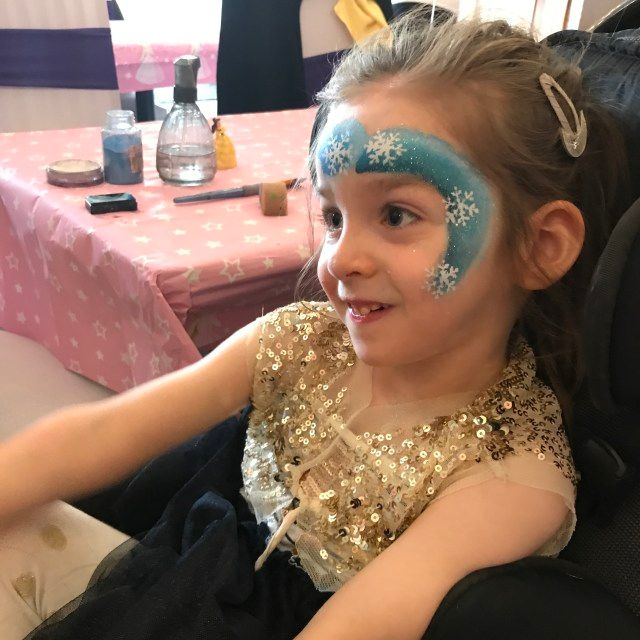
Quadriplegic athetoid cerebral palsy makes it hard for Lyla to control or strengthen her muscles. She is non verbal and that she can’t sit, stand or walk unassisted. While there is no cure for PMG or cerebral palsy there are many therapies and pieces of equipment which can teach Lyla how to work with her body rather than fight against it. Lyla is learning that she can do everything that other kids can do, she just has to do it a little differently.
Lyla's mom, Cara writes a thoughtful, funny and informational blog about her daughter Lyla. You can read more here: http://www.lylasangels.co.uk/
Lyla’s story
Lyla is a beautiful and very special five year old who was born in Melbourne, Australia but now calls Glasgow, Scotland home. She lives with her Mummy, Daddy and big brother. Lyla was born with a rare brain disorder called Bilateral Perisylvian Polymicrogyria (PMG) which has led to her having quadriplegic athetoid cerebral palsy.
Lyla was born in Melbourne on 2nd October 2012 to the sound of the U2 song, Beautiful Day and it truly was. We were all so excited to welcome our little girl into the world and into our family.
After the newborn sleepiness wore off we realized that Lyla was a very beautiful but very unhappy baby. She cried a lot more than her brother had, woke frequently at night, had a great deal of trouble drinking from her bottle and seemed to need me all a lot more than he had. Of course all babies are different and she had terrible reflux which distressed her greatly and left both our wardrobes on constant rotation!
When she was seven months old we began to realise that Lyla had missed several milestones and was unable to sit unassisted, hold herself upright or grasp objects. We told ourselves that all babies develop at different rates and that she would catch up in her own time. Her reflux however was out of control so we sought out a pediatrician to find a solution. We came out of that appointment with a script for reflux medication, a referral to a neurologist and a follow up appointment for two weeks time. During those two weeks thanks to Dr Google we started to recognize Lyla’s symptoms as being consistent with cerebral palsy. Our pediatrician had the unenviable job of confirming our fears. Lyla had quadriplegic athetoid cerebral palsy.
Within weeks we found ourselves immersed in a whole new world of disability. Thanks to the reflux meds there was less vomiting and after a stint at sleep school there was more sleep. Lyla continued to grow while we attended appointments with neurologists and developmental pediatricians. An MRI in November 2013 showed that Lyla has a rare brain disorder called Bilateral Perisylvian Polymicrogyria (PMG) and we were told there is no cure.
There was relief that we had a cause for the cerebral palsy, although the doctors still have no idea what caused the PMG, it’s comforting to know that there was nothing we could have done to prevent it. Lyla’s disability is something which is a part of her, it was always going to be a part of her rather than being something that happened to her.
Lyla is now five and she is a funny, demanding and very smart little girl. She goes to nursery and is getting ready to start school next year. She loves Paw Patrol, her dolls, her friends and her big brother, swings and chocolate.
Quadriplegic athetoid cerebral palsy makes it hard for Lyla to control or strengthen her muscles. She is non verbal and that she can’t sit, stand or walk unassisted. While there is no cure for PMG or cerebral palsy there are many therapies and pieces of equipment which can teach Lyla how to work with her body rather than fight against it. Lyla is learning that she can do everything that other kids can do, she just has to do it a little differently.

